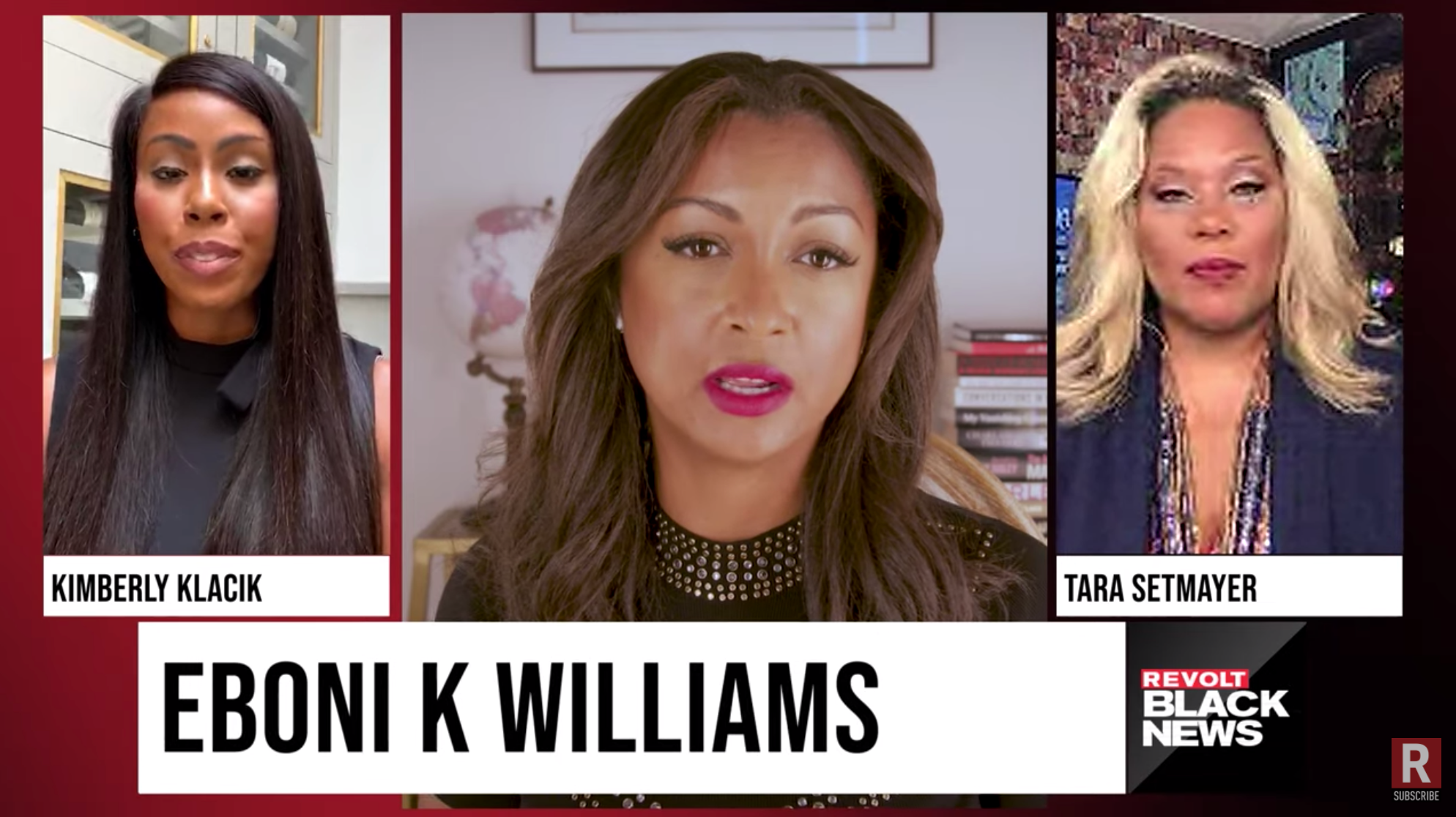
Republican Congressional candidate Kim Klacik has been causing quite a stir since her campaign ad, attacking Democratic leaders, went viral on social media following a retweet from Donald Trump. But when asked to cite a specific instance where Black people are doing well under Republican leaders, the woman running for Elijah Cummings old House seat representing Baltimore was at a loss for words.
Klacik appeared on Revolt Black News Thursday night with host Eboni K. Williams and conservative pundit Tara Setmayer. To kick off the segment, Williams played a clip of Klacik’s ad where she matter-of-factly states, “The worst place for a Black person to live in America is a Democrat-controlled city.” She then challenges voters to “name a Blue city where Black people’s lives have gotten better. Try—I’ll wait.”
Williams countered Klacik’s now viral message by asking the candidate for Maryland’s 7th Congressional District to name a Republican-controlled city or state where Black life has improved.
“Where Black life has improved?” Klacik responded, stumped. “Oh. That’s a good question. That’s not something I’ve looked up.”
Klacik’s response furthered Williams’s prior assertion that Republicans have often chastised the left for their leadership of Black communities, but haven’t always “demonstrated a better alternative.” When Williams asks the 38-year-old to spend some time telling her where she sees any evidence of the Republican party making the case for Black people, Klacik also appears unable to give a clear answer. Instead, she notes that Republicans need to do a better job at engaging inner cities. “Republicans have written off inner cities again and again,” she said.
Setmayer, senior advisor to the Lincoln Project, an anti-Trump coalition of conservatives, was able to shed some light on why Klacik may be unable to answer the very direct question. “What Donald Trump and Trump-ism represents is not conservatism,” the longtime conservative said. She also added that the party has been so focused on cultivating “White grievance” that they’ve neglected to cultivate policies that take Black lives into consideration or to explain why the conservative policy approach is more beneficial and presents a better way of life for Black Americans.

To that point, Williams questions how Klacik, someone who has repeatedly raised concern for Black lives, could so eagerly support a president who can’t say “Black Lives Matter” and a vice president who also takes issue with uttering the words. In response, she says she can’t explain why they won’t say it but without providing any legitimate evidence, claims, “Trump’s administration is here to help us and I’m going to do what’s right for Baltimore.”